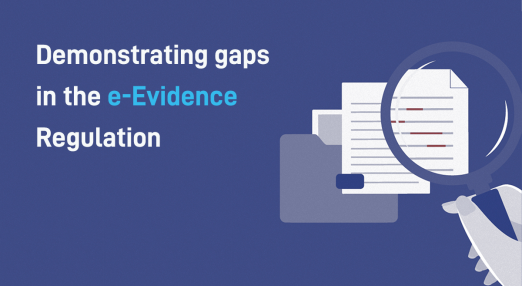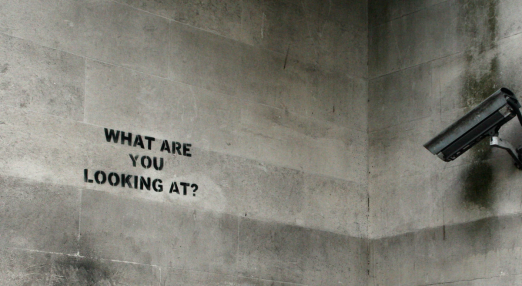Privacy
Filter by...
-

Guides to collect your data from Apps
EDRi's member Privacy International has devised a series of guides in order to help you collect your data from various platforms such as Uber, Facebook, Telegram and WhatsApp. All of these platforms store a lot of information about you in the cloud, which could become accessible to law enforcement agencies.
Read more
-

Declaration of Digital Principles: Towards a digital pillar of the EU?
On 26 January the European Commission proposed a Declaration on European Digital Rights and Principles. The Declaration will take the form of a joint solemn declaration to be signed by the European Parliament, the Council, and the Commission.
Read more
-

Chat control: 10 principles to defend children in the digital age
The automated scanning of everyone’s private communications, all of the time, constitutes a disproportionate interference with the very essence of the fundamental right to privacy. It can constitute a form of undemocratic mass surveillance, and can have severe and unjustified repercussions on many other fundamental rights and freedoms, too.
Read more
-

What went down at #PrivacyCamp22?
EDRi’s annual flagship event Privacy Camp took place yesterday, on 25 January, for the first time online. We hope many of you were able to attend and that you found the event just as inspirational as the in-person experience.
Read more
-

2021: Looking back at digital rights in the year of resilience
We started 2021, hoping to leave the tremendously challenging year of 2020 behind. The Covid-19 pandemic has had a devastating impact on our societies, causing unprecedented harm to people and economies. If 2020 was the year of the pandemic shock, 2021 was the year of resilience. We had to learn to live in a constant uncertainty of what it would take to keep defending human rights: Could we work and walk down the streets without being constantly surveilled? Would efforts to tackle disinformation distort legitimate content, or would they bring down Big Tech instead? Will 2022 be 2021 2.0?
Read more
-

EU: Data retention strikes back? Options for mass telecoms surveillance under discussion again
In June 2021 the European Commission sought the views of member states on ways to reintroduce the bulk retention of telecoms traffic, location and internet connection data on everyone in the EU. Responses from seven member states, published here, show a divergence of views on what data to retain and when, but a majority in favour of new EU legislation.
Read more
-

Italy introduces a moratorium on video surveillance systems that use facial recognition
On 1 December 2021, the Italian Parliament introduced a moratorium on video surveillance systems that use facial recognition technologies. This law introduces, for the first time in an EU Member State, a temporary ban for private entities to use these systems in public places or places accessible to the public. This moratorium is an important achievement: it recognises the dangers posed by technologies such as facial recognition to people's rights and freedoms. The moratorium will be in force until 31 December 2023 at the latest, unless a new law is introduced on the subject of biometric surveillance before that date.
Read more
-

No biometric surveillance for Italian students during exams
In September 2021 the Italian Data Protection Authority (DPA) fined Luigi Bocconi University €200 000 for using Respondus, a proctoring software, without sufficiently informing students of the processing of their personal data and, among other violations, for processing their biometric data without a legal basis. Bocconi is a private University based in Milan and during the COVID-19 pandemic introduced Respondus tools to monitor students during remote exams.
Read more
-

Booklet: Demonstrating gaps in the e-Evidence Regulation
The Regulation on cross border access to data by law enforcement (so-called “e-Evidence” Regulation) threatens to put the rights of journalists, lawyers, doctors, social workers and individuals in general at great risk. EDRi and 13 civil rights organisations have just launched four scenarios that clearly depict how our future could enfold if the Regulation is approved.
Read more
-

Press “Accept” to let companies know every step you take
When you download a free app and accept their privacy statement, did you know that you may just have allowed data about your movement to be sold freely to anyone who’s willing to pay? EDRi's member Elektronisk Forpost Norge (EFN) shares more.
Read more
-

Why you shouldn’t buy Facebook Ray-Ban smart glasses
Imagine that you are strolling along a tranquil beach in your swimsuit. Suddenly, a stranger walking toward you takes out their phone and starts recording you. You might work up the courage to ask how they dared to invade your privacy, and demand they delete the footage.
Read more
-

The terrifying expansion of Sweden’s state surveillance
For the last couple of years the Swedish parliament has been expanding the surveillance capabilities of law enforcement. After the European Court of Justice struck down Sweden's data retention law, the national parliament passed a replacement that did nothing to address any of the issues criticized in the first law. If telecom providers were to challenge it, which no one has shown any willingness to do, it would most likely be struck down again.
Read more
